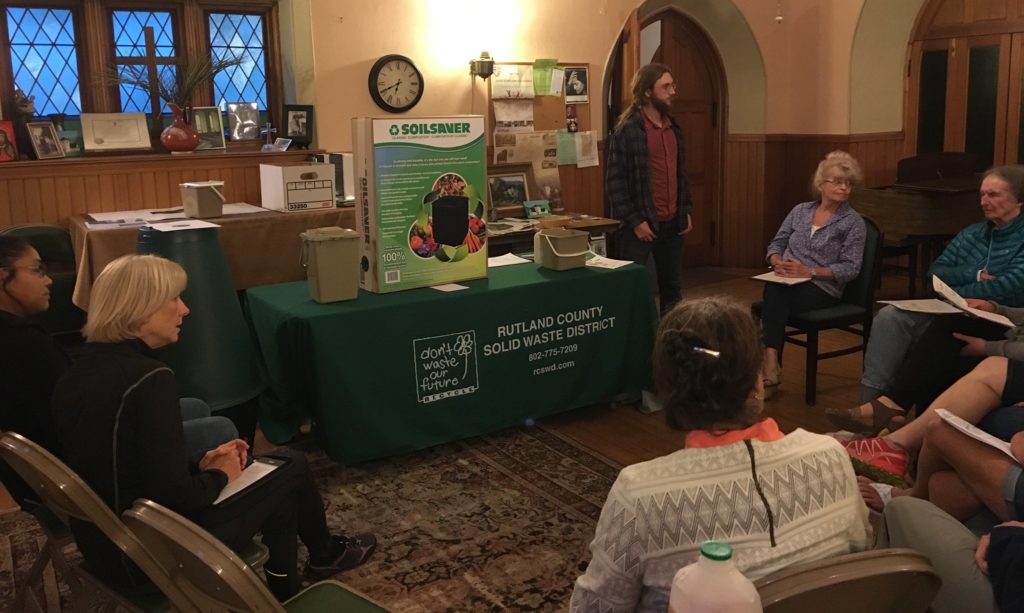 We had a blast at the Killington Farmers Market and Killington Compost Workshop a week ago! Twelve people attended the workshop, and half of them hadn’t tried composting in their backyard before. “Compost” Carl went over the basics of composting: why it’s important, and how it’s done; he also talked specifically about bear and animal issues with composting. There was a lot of question and answer discussion after the main points were made.
We had a blast at the Killington Farmers Market and Killington Compost Workshop a week ago! Twelve people attended the workshop, and half of them hadn’t tried composting in their backyard before. “Compost” Carl went over the basics of composting: why it’s important, and how it’s done; he also talked specifically about bear and animal issues with composting. There was a lot of question and answer discussion after the main points were made.
For more information and to set up a compost workshop in your town, contact Carl Diethelm- carld@rcswd.com
Practice Bear Aware Composting
If you live in rural Vermont (and some urban areas) you have probably taken down bird feeders from April to November to avoid it being knocked down by hungry bears. While bird feeders can be attractive, there are ways to compost food scraps without bringing in extra bears to your backyard. Figure out which method works best for you at different times of the year:
- Backyard compost pile- make sure to add 3 times as many browns (leaves, wood shavings, brown paper) as greens (food scraps) and always cover exposed greens with a few inches of brown material. Keep all contents in a sturdy container that has plenty of air holes, and turn frequently (at least weekly) to aerate the pile. There are some bear-resistant bins available, and many people have used the Green Cone Digester (subsidized to $120 by RCSWD) swithout bother from bears or other critters. The last tip is to keep the moisture level consistent around 50-60%– a squeeze test should produce some moisture, but no dripping.
- Bring food scraps to drop off location– all transfer stations accept food scraps for drop off, which are then composted or anaerobically digested. All you need is a bucket or bag to hold the food scraps, and you can avoid the hassle of doing it yourself! Put scraps in the fridge or freezer to keep smells down until your next disposal.
- Compost in your kitchen!– Worm composting can be done odorlessly and with cleanliness under a sink or in a closet. The worms and microbes eat food scraps quick enough that mold and odor are not produced. It can require some reading and practice to get the process down, so here are some further resources to check out:
- Worm composting overview by Elaine Nordmeyer, UVM Master Composter
- Worms Eat My Garbage by Mary Appelhoff
